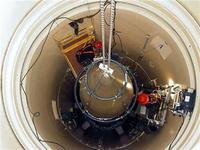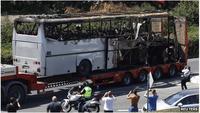-
U.K. terror suspects protected by anonymity rules
Two U.K. terror suspects – one an al-Qaeda recruiter, the other involved in the Nairobi shopping mall attack last year – escaped British detention in 2007, but are still protected by court-imposed anonymity orders. Seven men suspected of terrorism will be released into the community in the next few weeks when the control measures restricting their movements expire. These men, too, will benefit from court-ordered anonymity. Security experts say that as is the case with two suspects who absconded in 2007, some or all of the seven terrorism suspects will be in a position to evade surveillance by using their anonymity.
-
-
Expert calls for “surveillance minimization” to restore public trust
Surveillance minimization — where surveillance is the exception, not the rule — could help rebuild public trust following revelations about the collection of personal data, according to an expert on privacy and surveillance. “Surveillance minimization requires surveillance to be targeted rather than universal, controlled and warranted at the point of data gathering rather than of data access, and performed for the minimum necessary time on the minimum necessary people,” he says.
-
-
USAF nuclear-missile officers alleged to have regularly cheated on readiness tests

Three former U.S. Air Force officers have alleged that USAF officers responsible for operating nuclear-armed missiles at Malmstrom Air Base in Montana have, for many years, been cheating on monthly readiness tests, and were never punished for it. The former officers claim that cheating is the norm and that officers who did otherwise are the exception.The officers who made the allegations added, though, that misconduct on tests did not impair the safety of the nuclear weapons or the Air Force’s ability to launch missiles if ordered.
-
-
Florida teenager faces bioterrorism charges
Jesse Korff, 19, of Labelle, Florida is facing federal charges in New Jersey for selling poison through a black marketplace on the underground Internet. Law enforcement says from November 2013 through 15 January this year, Korff produced, stockpiled, and sold abrin for use as a weapon. The Center for Disease Control and Prevention (CDC) considers abrin, which is extracted from the seeds of the rosary pea plant, a subset of biological agents and toxins posing a threat to public health and safety. Small doses of abrin are potentially lethal to humans if ingested, inhaled, or injected.
-
-
Foreign jihadists in Syria encouraged to return home to engage in terrorism

Thousands of foreign fighters are traveling to Syria to fight the Syrian government in the country’s civil war. About 500 of those are from Britain, and many of these individuals are already known to British intelligence service, MI5. One British Muslim who had joined ISIS but then defected, says many of those Britons, along with other Europeans and Americans, are being trained as jihadists and then encouraged by their trainers to return home to launch terrorist attacks. Manuel Valls, France’s interior minister, said jihadists are the “biggest threat that the country faces in the coming years.”
-
-
The basis for a permanent deal: deep, verifiable changes to Iran’s nuclear program
A new study says that only broad and verifiable changes to Iran’s current nuclear program could serve as a basis for a permanent nuclear deal between Iran and the international community. Among the changes: reducing the number of Iran’s uranium-enrichment centrifuges from the current 19,500 to no more than 4,000, and limiting Iran to one enrichment site; converting the heavy-water reactor being built in Araq to a light-water reactor fueled by low-enriched uranium; and imposing a tight, intrusive inspection regime for at least twenty years.
-
-
Aussie police uncovers vast money laundering operation used by terrorists, criminals

Terror groups are known to rely on money laundering operations to finance their activities. A recent operation by an Australian government taskforce has revealed the scope of money laundering operations within the country’s borders. The investigation, which has uncovered forty money laundering operations in Australia, has so far seized $26 million in cash, seized $30 million worth in houses and other assets, and has intercepted drug shipments worth at least $530 million.
-
-
New York mulling first U.S. college dedicated to homeland security studies
Political, educational, and law enforcement leaders in New York are actively exploring the idea of creating pro the U.S. first college focused on emergency management and homeland security on the Syracuse University (SU) campus. “Believe it or not, there is no such college,” Governor Andrew Cuomo said during his fourth State of the State address two weeks ago. “I believe this is a field that is only going to grow. Unfortunately, it’s only going to get worse. And we want this college right here in the state of New York, training our people and training others from around the country.”
-
-
CBP flew its drones on behalf of other agencies
The U.S. Customs and Border Protection(CBP) operates the largest drone fleet in the United States. The Defense Departmenthas a much larger fleet, but it is prohibited from operating its drones in the United States for law enforcement missions. The FAA is working on opening U.S. skies for public and commercial drone traffic, but for now CBP is the only agency permitted to operate drones on a daily basis within the nation’s borders. Released documents show that agencies not allowed to operate drones borrowed them from CBP.
-
-
Assad bolsters al-Qaeda affiliates in Syria with secret oil deals, prisoner release: Western intelligence
Western intelligence agencies say that President Bashar al-Assad’s regime, in a complex double game, has provided funds to and cooperated with al-Qaeda-affiliated terrorist organizations in Syria even as these organizations fight the Syrian military. The regime has two goals in pursuing this policy. The first is to persuade the West that the uprising is inspired and led by Islamist militants, including al-Qaeda and its affiliates, in order to weaken, and even stop, Western support for the rebels. The second is to allow the jihadists to gain the upper hand in the internal fighting among rebel groups. The regime believes that if the rebellion is seen to be led by Islamist fundamentalists rather than secular and moderate Syrians, more non-Alawite Syrians would side with the regime against the rebels, even if grudgingly.
-
-
Judge denies defense request to see whether NSA surveillance led to terrorism charges
U.S. District Judge Sharon Johnson Coleman on Friday ruled that lawyers for Adel Daoud, a 20-year old resident of Hillside, a suburb west of Chicago, who was charged with plotting to set off a powerful bomb outside a crowded Chicago bar, will not be allowed to examine whether the investigators who initiated the sting operation which led to Doud’s arrest relied on information gleaned from NSA surveillance programs. Attorneys for Daoud had asked Judge Coleman to instruct prosecutors to disclose “any and all” surveillance information used in Daoud’s case, including information disclosed to a U.S. Senate’s Select Committee on Intelligence. In a brief ruling posted late Friday, Coleman denied the motion, writing that the defense had “failed to provide any basis for issuing such an order.” Prosecutors would not confirm whether the FBI had initiated its operation against Doud as a result of a tip from the NSA, but they did say that even if such surveillance did exist, they have no plans of using it at trial and the defense was not entitled to it.
-
-
California lawmakers propose restricting use of antibiotics in livestock

The growth of antibiotic-resistant bacteria in humans has been attributed to the increasing use of antibiotics in livestock. The Centers for Disease Control and Prevention(CDC) estimates that antibiotic-resistant bacteria infect more than two million Americans a year,killing at least 23,000 of them. California legislators are proposing new laws to restrict the use of antibiotics in livestock.
-
-
Economists propose market-driven solutions to the problem of antibiotic use in agriculture
Fifty-one tons of antibiotics are consumed daily in the United States, of which 80 percent are used in agriculture. To minimize the overuse of antibiotics in livestock, Aidan Hollis of the University of Calgary is proposing the imposition of an antibiotic tax on food producers, thus encouraging them to distinguish between good and bad use of antibiotics, since the fee would force farmers to purchase antibiotics only when needed to treat sick animals and not for non-illness purposes.Timothy Richards of Arizona State University says that more regulations or a tax would run the risk of harming the agriculture industry. He says that farmers and ranchers should clearly label their products as containing or not containing antibiotics, and then market dynamics would operate by “letting people follow labels and buy or not buy meats where antibiotics are used.”
-
-
Rep. Rogers, House Intelligence chair: Russian intelligence may have helped Snowden

Representative Mike Rogers (R-Michigan), chairman of the House Intelligence Committee, said that Russia may have helped the former NSA contractor Edward Snowden to reveal details of surveillance programs and escape U.S. authorities last year. Rogers said he could reveal evidence which would support his claims, but suggested Snowden “used methods beyond his technical capabilities” and had help with his travel arrangements. Rogers’s comments were backed by Michael McCaul (R-Texas), chairman of the House Committee on Homeland Security. Senator Diane Feinstein (D-California), chair of the Senate Intelligence Committee, asked whether he was aided by the Russians, said: “He may well have.”
-
-
Judge says DHS made “mistake” placing Malaysian woman on terrorist watch no-fly list
Rahinah Ibrahim, 48, was prevented by TSA agents from boarding a plane in San Francisco in 2005 because his name showed up – erroneously –on the government terrorist watch no-fly list. She was eventually allowed to leave the country, but has not been allowed to re-enter the United States since. Last Tuesday, U.S. District Judge William Alsup ruled that DHS made a “mistake” when it put Ibrahim, a former Stanford University Ph.D. student, on the list, and that the government must give her an opportunity to apply for reentry to the United States. Ibrahim’s challenge of the government’s actions is believed to have been the first trial of its kind in the country. It was held before Judge Alsup without a jury.
-
More headlines
The long view
Factories First: Winning the Drone War Before It Starts
Wars are won by factories before they are won on the battlefield,Martin C. Feldmann writes, noting that the United States lacks the manufacturing depth for the coming drone age. Rectifying this situation “will take far more than procurement tweaks,” Feldmann writes. “It demands a national-level, wartime-scale industrial mobilization.”
No Nation Is an Island: The Dangers of Modern U.S. Isolationism
The resurgence of isolationist sentiment in American politics is understandable but misguided. While the desire to refocus on domestic renewal is justified, retreating from the world will not bring the security, prosperity, or sovereignty that its proponents promise. On the contrary, it invites instability, diminishes U.S. influence, and erodes the democratic order the U.S. helped forge.
Fragmented by Design: USAID’s Dismantling and the Future of American Foreign Aid
The Trump administration launched an aggressive restructuring of U.S. foreign aid, effectively dismantling the United States Agency for International Development (USAID). The humanitarian and geopolitical fallout of the demise of USAID includes shuttered clinics, destroyed food aid, and China’s growing influence in the global south. This new era of American soft power will determine how, and whether, the U.S. continues to lead in global development.
Water Wars: A Historic Agreement Between Mexico and US Is Ramping Up Border Tension
As climate change drives rising temperatures and changes in rainfall, Mexico and the US are in the middle of a conflict over water, putting an additional strain on their relationship. Partly due to constant droughts, Mexico has struggled to maintain its water deliveries for much of the last 25 years, deliveries to which it is obligated by a 1944 water-sharing agreement between the two countries.
How Disastrous Was the Trump-Putin Meeting?
In Alaska, Trump got played by Putin. Therefore, Steven Pifer writes, the European leaders and Zelensky have to “diplomatically offer suggestions to walk Trump back from a position that he does not appear to understand would be bad for Ukraine, bad for Europe, and bad for American interests. And they have to do so without setting off an explosion that could disrupt U.S.-Ukrainian and U.S.-European relations—all to the delight of Putin and the Kremlin.”
How Male Grievance Fuels Radicalization and Extremist Violence
Social extremism is evolving in reach and form. While traditional racial supremacy ideologies remain, contemporary movements are now often fueled by something more personal and emotionally resonant: male grievance.
